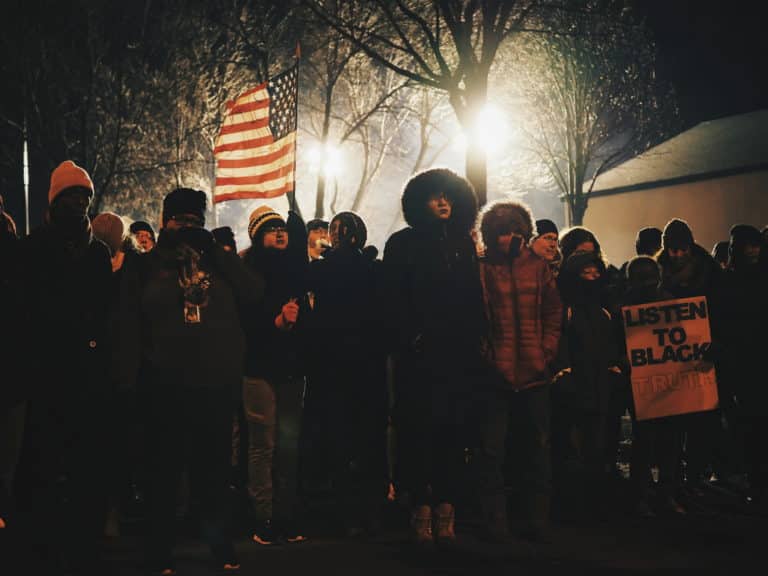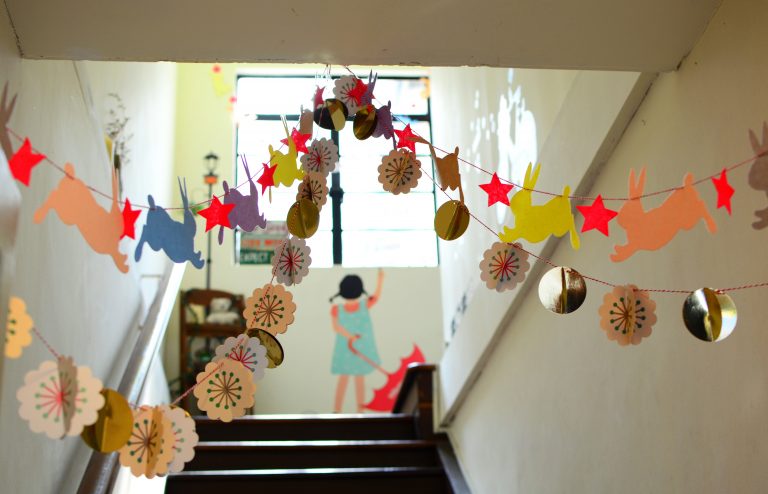
Processed with VSCO with hb2 preset Image by Brent Moore.
No Less Than Holy: Finding Communion in #BlackLivesMatter
For part of a week in mid-December I worked at a toy company in St. Paul, Minnesota. The company needed help assembling a last-minute order from a major buyer. I was seeking distraction from the gnawing loneliness that rises in me each year around the holidays.
On my first day, I spent the afternoon with three of the staff, cleaning water stains off of toy pieces and inspecting them for damage. It was mindless, repetitive labor. Still, after a half-hour or so of working in that brightly lit, warm, and music-filled space, my shoulders fell back toward my spine, my breathing slowed. I had found what I had wanted: relief.
Four days later, I returned and looked out onto what seemed like a sea of people. The word had gotten out about this temporary job, and now two fully staffed assembly lines buzzed with chatter, accented by occasional shouts of encouragement and the bopping of heads to the music. It was an intergenerational group of a variety of skin colors, cultural origins, modes of self-expression, and professional tracks. The next day a high school class came to work; later, a fellow massage therapy student stayed for a shift. A friend that I’d met at a Black Lives Matter march in Minneapolis showed up and swiftly became friends with a person (previously unknown to me) who answered an ad for the job that I posted on Facebook.
That space grew to harbor a certain kind of feeling. As best as I can tell, this sentiment lives in the word generosity — the kind that often goes unspoken, that can function as a grounding substrate for ordinary human exchange. In Christian holiday parlance, you could call it goodwill.
I had felt the same, undergirding goodwill at the occupation of the Minneapolis 4th Precinct police station. In and amidst the chants and signs and speeches, there were hugs and gripped shoulders, smiles of recognition, and introductions between friends of friends. They used words like “beautiful,” “sacred,” and “love.” A friend who lives by the tenets of the Catholic Worker movement, and who was maced by police officers on the fourth night of the protest, described the assistance he received from strangers — who poured milk over his eyes and then provided him with dry clothes — as no less than “holy.”

It’s this shared feeling that I want to foreground in talking about Black Lives Matter and not the skeptical media coverage, the “All Lives Matter” backlash, or the arguments on Facebook — not even Black Lives Matter’s tremendously-inclusive guiding principles, or the fact of the name itself — black lives matter — its poetic force, simple and profound, weighted with the acknowledgment of centuries of inhumane treatment. Still it’s this feeling, this goodwill, that I most want to describe. Such an emotion holds in it the future, or the future that I want, anyway.
Creating a culture that fosters goodwill requires work beyond writing bylaws and mission statements. Violence, love, generosity, and fear intermingle in our communities because they all exist, as latent or active potential, inside of us. Building a consistent emotional space means generating a force of feeling strong enough to encourage other people — strangers — to select against their impulses and to lean into nothing more than faith that their good feeling will be returned.
Black Lives Matter’s logistical organization of the protest at the 4th Precinct largely inspired the goodwill professed by participants there. Organizers solicited and accepted donations of food, clothes, firepits, coffee, bail money, even bodywork. When author Ryan Berg asked a volunteer how he might assist, she surveyed her surroundings and said, “We might need more lids for coffee in a few hours.” Preparedness did not protect protesters from vigilante or police violence, but it did hold a space within each of us for compassion.
Such tedious, logistical care builds the same broadly felt love that stitches together neighborhoods and co-ops, office buildings and political movements, sports teams, nations, and armies. It is ubiquitous. It is hard to sustain. And, for this reason, it is precious.

We are faced, everyday, with an onslaught of information, a scarcity of living-wage jobs, news of police brutality, terrorism, and political and economic crises born out of environmental upheaval: floods, tornadoes, droughts, and diminishing petroleum reserves. The increased speed of the information-exchange gives the perception that time itself is speeding up — or slipping away. In the presence of the real fear that scarcity engenders, we could (and often do) forego moral purpose in favor of material surety. We fumble and stall in our search for meaningful forms of action.
A little after five on a Wednesday, a shout rang through the toy company’s factory space. “We did it!” cried one of the staff. Together we all cheered. Then cookie trays were stacked, timesheets signed, coats gathered, and within half an hour most of the temporary workforce had left the building.
Silence descended over the tables and storage bins, a quiet reminiscent of my solitary bike rides home from the protests. I recognized the lurch in my stomach, the hollow feeling left in the absence of the energy built by so many bodies, moving, chanting, working together.
Physical aloneness by itself has no teeth compared to existential isolation, the kind that arises from a distrust in other people’s desire or ability to embrace you. Wanting relief from this more insidious suspicion brought me through the company’s doors. It’s the same relief I was startled and grateful to find in Black Lives Matter protests this fall. In both spaces I found an implicit invitation and a taking up. “Let’s do this together,” we said to each other beneath the smiles, the music, and the free coffee. Such generosity was a choice, and for each of us, also, a gift.

